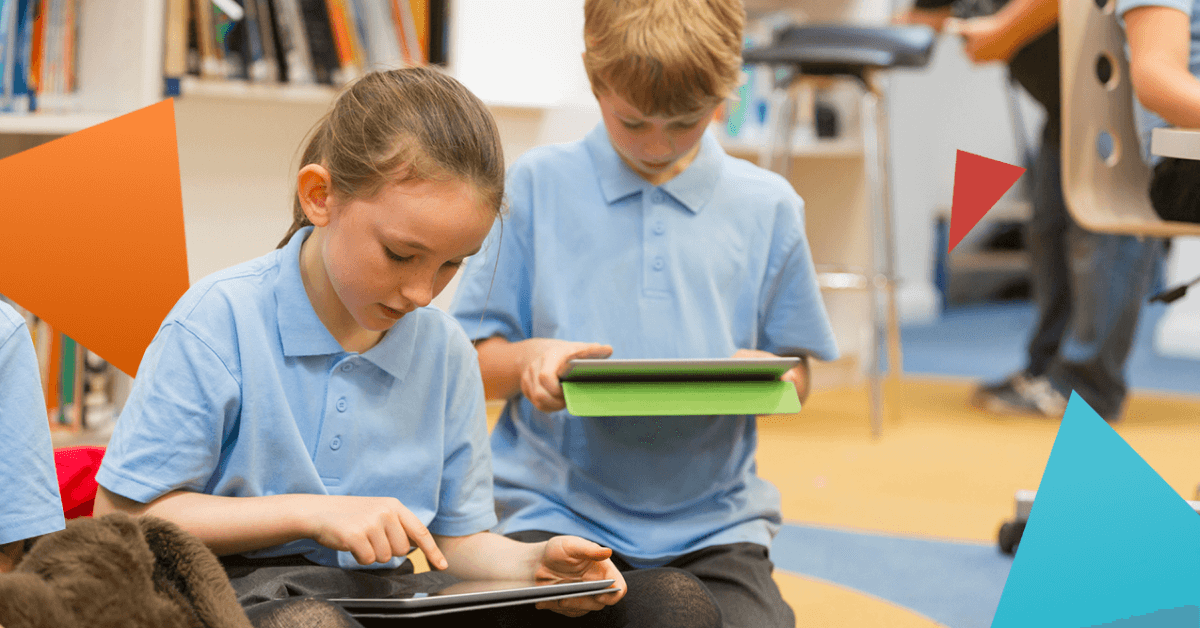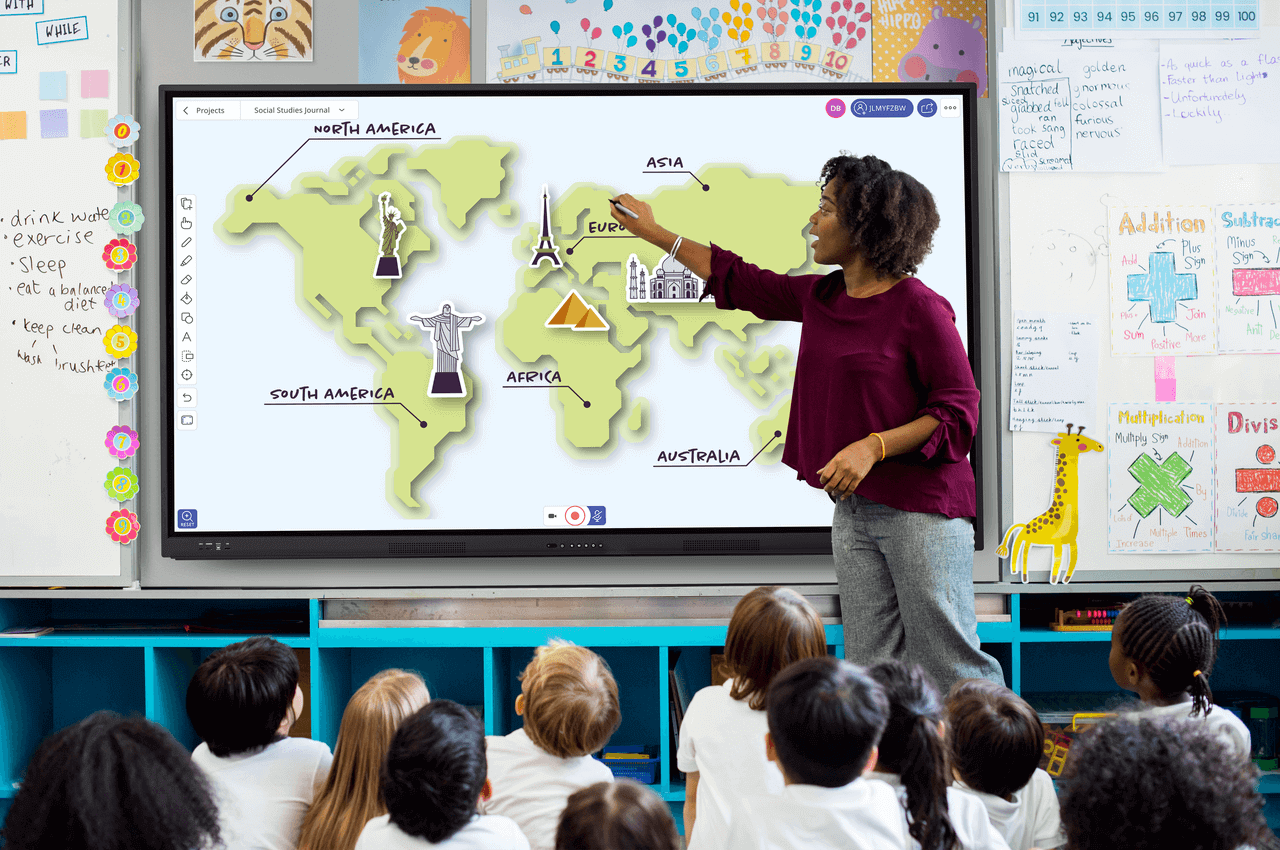Published on February 1st, 2022
Science games for Key Stage 3 (KS3)
11 minute read

Key Stage 3 is when many subjects open up into whole new worlds. Science, in particular, is something that takes on a whole new lease of life at KS3. Not only do the subjects taught get increasingly more detailed and challenging, but the subject itself is broken into three; Chemistry, Physics and Biology.
Science, almost by definition, is a subject that encourages experimentation. It’s all about discovery, observation and performing experiments. In school, there’s always a murmur of excitement when you enter the classroom, and the Bunsen burners are set up on the desks. This makes it a perfect subject for gamification, especially as you can’t get those Bunsen burners out in every lesson, so we’re going to run you through several fun games and experiments for science at KS3 that are perfect for your interactive display.
What is taught in KS3 Science?
First of all, the KS3 Science curriculum is split into the three core subjects of Chemistry, Biology and Physics. The overarching goal for these subjects is the same, though, to develop a deeper understanding of scientific ideas, understand the links between each subject and work scientifically. To work scientifically means that students will be taught about scientific attitudes, experimental skills, how to analyse and evaluate and finally, how to measure their findings.
Your students will explore the world through the wonderful lense of science, get hands-on and solve problems across a wide variety of subjects as they learn how they all link together and make both the natural world and physical world turn.
With this in mind, this collection of interactive activities and science games (KS3) will cover the different parts of the curriculum for each subject to help you with your lesson planning.
A KS3 science game for all three subjects: Atomic Lab from BBC Bitesize
This interactive online game has been designed to help students learn core principles across physics, chemistry and biology. Help fix the lab and run experiments while learning about circuits, magnets, photosynthesis, reacting metals and much more.
Usually, though, each subject tends to be taught separately. So with that in mind, here are our favourite KS3 science games and interactive activities that don’t need any equipment. These will help improve your student’s science skills without getting too messy.
Four science games for KS3 chemistry
In KS3 chemistry, you’ll open up the world of chemicals and elements. This is when the periodic table is first taught, alongside particles, atoms, elements, different materials and the atmosphere itself. Introduce your pupils to distillation, dissolving and the pH scale. You’ll also be able to show your students fun chemical reactions and how to set up their own exciting experiments.
With this in mind, here are our favourite KS3 chemistry games, classroom activities and interactive tools:
1. Chemical reactions – Chemical Eruption
The chemical eruption is one of the classic chemistry activities which has appeared in film and TV for decades. It is designed to help students understand how volcanoes work while learning about chemical reactions. Students create their own volcano and add a few simple ingredients to create an incredible volcanic eruption!
2. The periodic table – Proton Don: Name the Element
The periodic table forms the core of the next few years of chemistry and other parts of science. Teaching it in this interactive way can help your students learn about the elements involved. It’s perfect for loading on your interactive display and playing with the whole class.
3. Earth & atmosphere – The Cheese Toastie Rock Cycle
You heard that right. Combine learning about the stages of the rock cycle with putting together the ultimate cheese toastie. You’ll be comparing the construction of the sandwich with the formation of sedimentary and metamorphic rocks, and it comes with its own activity sheet.
4. Particulate & elements: The States of Matter Basics
While not strictly a game, this interactive learning tool lets you show your students the particle states of different solids, liquids and gases. It also then allows you to agitate them in many different ways. This lets your students see what happens to different particles under various conditions.
Three games for KS3 Biology
Biology is all about discovering living things, from animals to humans. At KS3, you’ll find that biology explores cells, muscles, nutrition and all sorts of other living organisms. Here your students will learn all about reproduction, health, the relationships between ecosystems and even genetics & evolution.
1. Cells & organisation: Cell Parts – Can You Guess?
This card game helps your students learn all about cells and their structures. They’ll be encouraged to describe them without using certain words, like animal or plant. You’ll need to print them out, but you can use them on a screen, too, if you need.
2. Living world: Biobreakers
A game inspired by the legendary TV show Blockbusters, this is a fun and engaging way to help your students learn key terms and definitions within biology. The aim is to work your way across the grid of letters in a line, with questions phrased around the letter, for example:
“This [C] is a tiny blood vessel” – a capillary.
3. Photosynthesis: The Photosynthesis Relay
Photosynthesis, as a concept, sounds fairly simple. However, if you want to reinforce it for your students, then the photosynthesis relay is a great idea. The goal is to help them understand the formula:
Water + carbon dioxide + light > Oxygen + Sugar + Water
They’ll take it in turns to load the plant up with the water, carbon dioxide and light before taking the oxygen, sugar and water out. The twist is that they can only do one at a time. The first team to complete it wins!
Three KS3 physics games
Physics introduces several new concepts at KS3. Students will be taught how to measure energy in kJ, power ratings in W & kW, plus the transfer of energy. In addition to this, they’ll discover motion and forces as well as sound waves and light waves. They’ll take a deep dive into technology, including electricity and electromagnetism.
1. Forces: Balanced & Unbalanced Forces
This resource is perfect for your interactive display. You’ll introduce the concept of forces to your class, then challenge them to answer questions, match keywords and complete force diagrams based on what they’ve seen.
2. Sound Waves: Wave Simulation
By the time your students hit KS3, they should already understand that light and sound move in particular ways. It’s at this point that you’ll introduce waves to them. This tool helps you visualise a sound wave and then lets your students change both how they see it and what affects it. Let them play with different wave speeds, frequencies and amplitudes to see what happens.
3. Electricity and electromagnetism: Circuit Builder
An interactive circuit builder is a fun way for students to learn the basics of circuit drawing while also testing out basic circuits in a safe environment. They’ll learn all about how current flows around a circuit,just drag and drop the components and see how it works.
Discover more games for KS3 students
Key Stage 3 isn’t just about creating the world’s next scientists. You’ll also be helping students develop their English, math skills, history knowledge and much more. We’ve created interactive whiteboard resources for all of the key subjects and you can find them in our ultimate list of classroom games for KS3.
Science games on interactive displays
Nearly all of the games listed above can be played seamlessly on a Promethean interactive display. The online games can be downloaded and played from the display and mirrored onto student devices for ultimate engagement.
Are you interested in learning more? Speak with a Promethean expert and request your FREE demo today!
Additional Resources:
Maths games for Key Stage 3
English games for Key Stage 3
Classroom games for Key Stage 3 students




